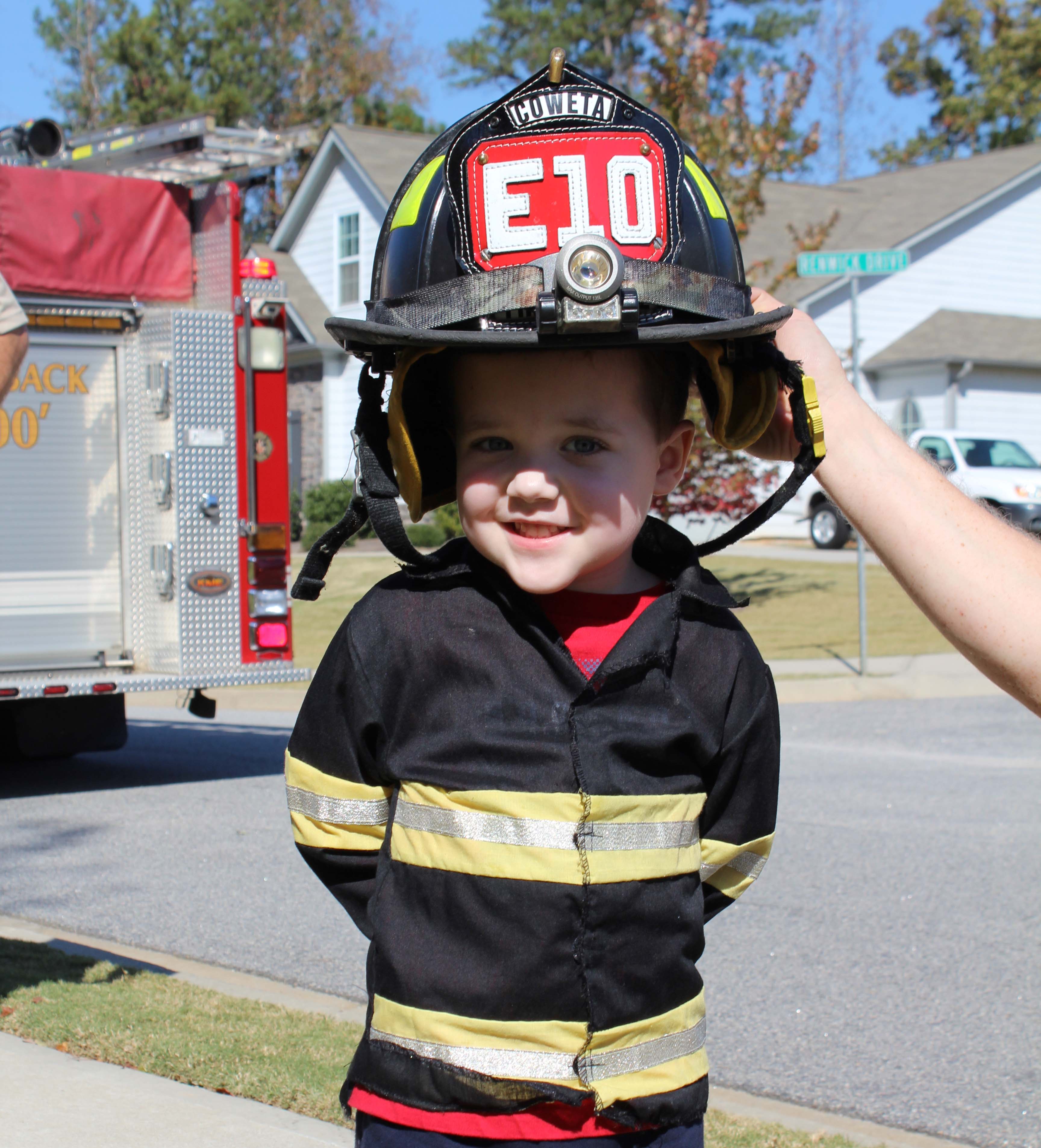Did My Child Die According to God’s Perfect Plan? (A Guest Post)
It’s been three years since my 4-year-old died from brain cancer, but sometimes it feels like it was yesterday. The memories can come roaring back in the blink of an eye, leaving me motionless, breathless, and aching. Sometimes I long to hold little Henry like I long for air. Even as I push forward, I encounter reminders of loss everywhere.
Two years ago we moved half-way across the country. In part, we moved to escape the reminders. We left behind the empty bedroom decorated in oranges and blues. We traveled 1,150 miles away from the library with the fountain in the front and story time on Tuesday mornings. We put days of driving between us and the pediatrician’s office with the green vinyl-covered chairs and matching industrial carpet. I left Henry’s shadows, but I can’t seem to outrun the reminders.
When I hear about a toddler being snatched and killed by an alligator, my blood runs cold. A weight sinks into my chest and doesn’t lift for hours. I know what it feels like to hear your child scream out in pain. I’ve walked through helplessness, terror, and disbelief. I know about the birthday parties his parents will never throw, the presents they won’t buy, the holidays that will feel somewhat empty and off. I understand the pain they’ll feel as they watch other children his age grow, enter kindergarten, and learn to ride their bikes without training wheels. I realize the strain that this type of loss will put on their relationships, perhaps even their identities. I know how, even years into the future, they’ll feel like something is missing when everyone is present.
When mass shootings occur and sacred lives are senselessly slaughtered, I am completely undone. I can’t seem to find words or formulate thoughts through a fog of horror and grief. My heart turns towards the loved ones facing funerals filled with polite and sympathetic conversation. Afterwards, they’ll watch as the shock fades for everyone else. The masses will disperse back into the groove of life while they instead limp forward, tired, cautious, acutely aware of the cruelty this world can dish out. There will be no going back to “normal.” Normal is forever changed. They are forever changed.
And when I come across yet another Facebook status about yet another child diagnosed with terminal cancer, I freeze. I spend a few moments locked in the painful silence of remembering, reliving, dreading for them what lies ahead. We live in a world where pain is everywhere.
Why is the world this way? How do we make sense of all this? As a Christian, I’ve turned to faith for answers. But sometimes faith can bring more questions. For example, the Bible says that God is all-powerful. Can’t God stop an alligator? Or vaporize a tumor? Scripture also says that God is love. Doesn’t God want to paralyze a gunman with murder on his mind?
Does God lack the power or the desire to prevent unspeakable pain?
I know I’m not the only one who has wrestled with this question. Some of you may have wondered: Did God lack the power or the desire to prevent my rape? My miscarriage? My cancer?
Some Christians attempt to answer these questions with phrases like “Everything happens for a reason” and “Sometimes we just can’t see what God’s doing when our eyes are blurry with tears.” Other times we’re told that suffering is “sent to refine us,” is a “blessing in disguise,” or is simply a necessary part of “God’s plan to glorify himself.”
These ideas stem from the assumption that everything is happening according to God’s perfect plan – his meticulous, divine blueprint. But I think it’s time to question that assumption.
After all, how can we call God love if God is the one orchestrating our devastation?
How can we sincerely worship a God whose glory-seeking plan requires alligator teeth in toddler flesh, bullets spraying through a crowd, or terminal brain cancer in a 4-year-old?
How could this God be considered praiseworthy? If God plans all our pain in minuscule detail, then his character doesn’t strike me as loving or praiseworthy. At best, it seems mysterious; at worst, it seems sadistic.
Finally, how do we reconcile this picture of God with God’s self-revelation in Jesus? The Bible says Jesus was the exact representation of God’s essence (Heb. 1:3). Yet when we look to Jesus’ ministry, we see a God who healed the broken… he didn’t break the healthy to glorify himself. Does God in Spirit hold a different standard of morality than his flesh-and-bones representation?
Several years ago, I began to compare God’s self-revelation in Jesus to my picture of a God who designs humanity’s suffering. That’s when I discovered a huge chasm. And during the process of engaging my questions, I found new, more satisfying answers.
Now I stand with a growing number of Christians who think it’s time for us to take another look at one of the most important questions in the world: If God is loving and all-powerful, why do we suffer? In my experience, the answer points us to a God who is more stunningly beautiful, more pure, and more loving than most of us have ever dared to imagine.
Find Jessica Kelley’s book on Amazon: Lord Willing?: Wrestling with God’s Role in My Child’s Death.
Kelley is a writer, speaker, and author of Lord Willing?: Wrestling with God’s Role in My Child’s Death, (Herald Press, April 2016). She has a B.S. in Psychology, a M.S. in Counseling & Human Development, and experience as a School Counselor. Born and raised in the South, Jessica now lives with her husband and five-year-old daughter in Saint Paul, Minnesota. She survives the absurdly long winters by going to the gym, dreaming about the beach, and eating copious amounts of chocolate. You can find her processing her faith journey at JessicaKelley.com.

